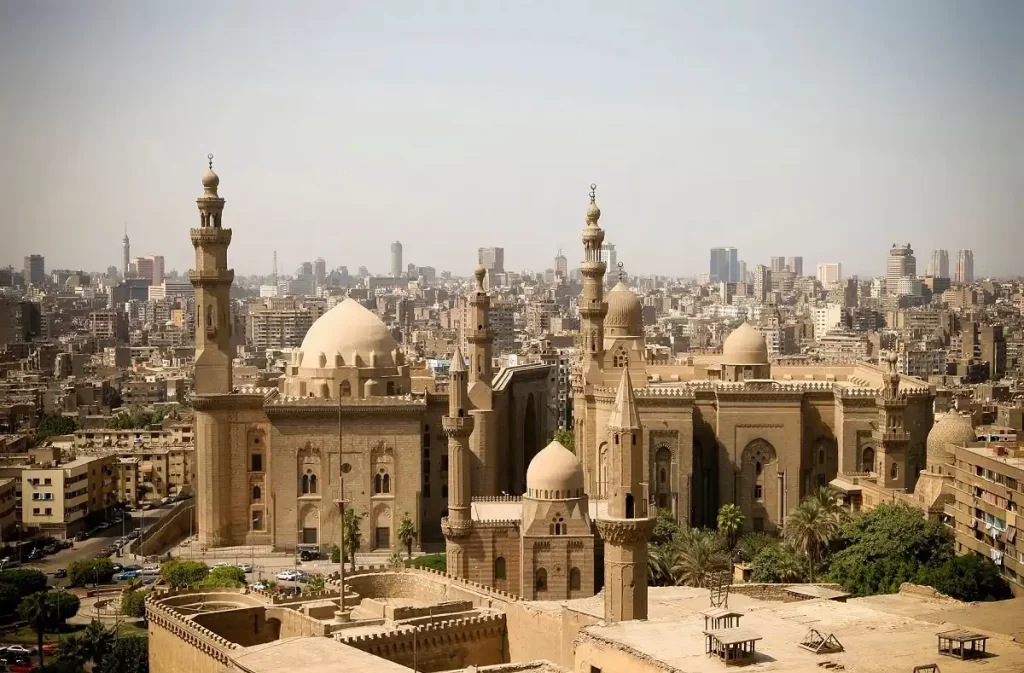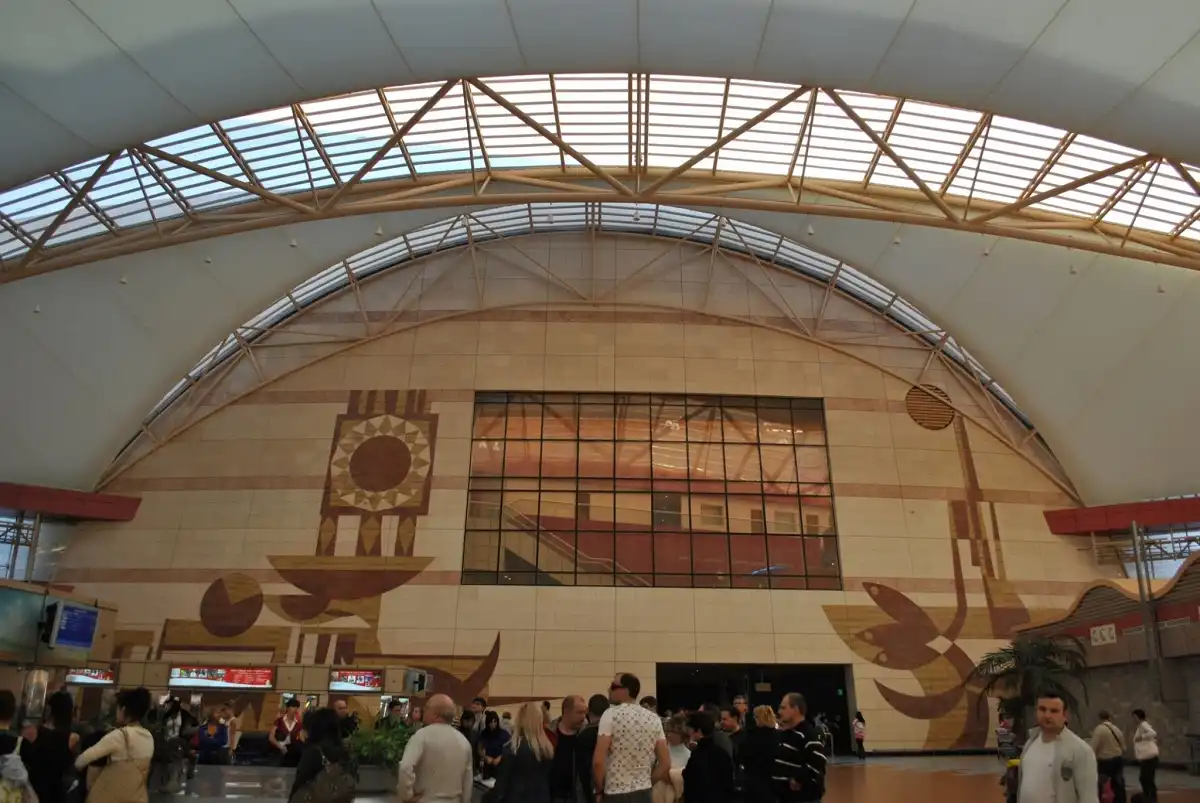
Sultan Hassan Mosque
[ez-toc]
Cairo is known as the “city of minarets” and is home to one of the largest collections of magnificent mosques, including the Mosque-Madrassa of Sultan Hassan, which is known as one of the most beautiful Islamic structures in the world due to its ability to elegantly and magically combine a variety of decorations.
Sultan an-Nasir Hassan constructed the Sultan Hassan mosque between 1356 and 1363 AD, making it the best specimen of early Mamluk architecture in Cairo. One of Cairo’s most significant and impressive historical landmarks to this day is the Sultan Hassan mosque and Madrassa. It is enormous, measuring 150 meters in length, 7,906 square meters in area, and having walls that are 36 meters high. It is said that the building cost so much that it almost completely depleted the Mamluk Treasury and that the architects even used stones from the Giza pyramids.
The Architecture of Sultan Hassan Mosque
The mosque’s architectural design is quite distinctive because it was created in the shape of a Madrassa (school). The decorations are noted for having very well-organized, methodical designs that are done in a chic manner. The stunning ablutions fountain in the center of the Sultan Hassan mosque’s central open courtyard was probably installed during the Ottoman era.
A madrasa with its own courtyard and four levels of rooms for students and teachers is cleverly tucked between and behind each of the four towering Liwans (teaching halls) that flank the central courtyard. Hanafi, Malaki, Hanbali, and Shafi’i are the four primary Sunni schools of Islamic law. The Kiwanis were committed to educating each of these schools.
Components of Sultan Hassan Mosque
Sultan Hassan also constructed a mausoleum for himself, but it was never used. It is located behind the largest Liwan and features many marvels of Islamic art on its walls, which are paneled with colored stone and marble. The upper part of the Liwan also has a band of stucco decorations, which features an inscription based on Qur’anic verses in the “Kufic” script on a floriated background. It also houses the marble mihrab and the minibar.
The marble mihrab of the tomb is enriched with intricate geometric decoration made of marble mosaic, and its dome was supported on stalactite pendentives, which look especially lovely in the morning. The mausoleum was magnificently decorated. The worshippers had to face the empty mausoleum each time they faced the qibla because it was built to face Mecca, which is seen to be quite strange. Tourists may mistake it for the Al-Rifa’ I Mosque, which was constructed in 1912 as a replica of this remarkable structure.



